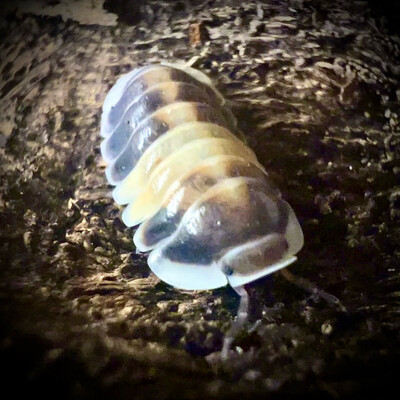
In the realm of vivariums and terrariums, where enthusiasts aim to recreate miniature ecosystems, sustainability and ecosystem health are paramount. As interest grows in maintaining self-sustaining habitats that mirror natural environments, isopods have emerged as invaluable allies. These small crustaceans, commonly known as woodlice or pill bugs, play a pivotal role in sustainable ecosystem maintenance within vivariums and terrariums across the UK. Let’s delve into how isopods for sale uk contribute to creating and sustaining balanced ecosystems, making them essential additions for hobbyists and conservationists alike.
The Role of Isopods in Ecosystem Maintenance
Isopods are integral members of the cleanup crew in vivariums and terrariums, performing vital ecological functions that contribute to ecosystem balance. Their primary role centers around decomposition—feeding on decaying organic matter such as fallen leaves, dead plant material, and animal waste. By breaking down these substances, isopods facilitate nutrient cycling, releasing essential elements back into the soil or substrate. This process not only cleans the environment but also enriches it, providing vital nutrients that support plant growth and overall ecosystem health.
Additionally, isopods contribute to soil aeration as they burrow and move through the substrate. Their activity helps to prevent compaction and improves drainage, creating favorable conditions for plant roots and promoting healthy root development. By enhancing soil structure, isopods facilitate better water infiltration and root access to nutrients, which is crucial for maintaining vibrant and thriving plant life within vivariums and terrariums.
Species Diversity and Adaptability
The availability of diverse isopod species for sale in the UK allows hobbyists to select inhabitants that suit their specific setup and aesthetic preferences. Armadillidium species, such as Armadillidium maculatum and Armadillidium vulgare, are popular choices due to their hardiness and adaptability to various vivarium conditions. These isopods are known for their distinctive ability to roll into a ball when threatened, which not only protects them from predators but also adds visual interest to terrarium landscapes.
Porcellio species, including Porcellio scaber and Porcellionides pruinosus, are favored for their range of colorations and patterns, from muted grays and browns to vibrant oranges and blues. These isopods not only enhance the aesthetic appeal of vivarium setups but also contribute to ecosystem diversity and stability through their ecological roles. Their presence supports a balanced microcosm where natural processes thrive, fostering a more sustainable and self-regulating ecosystem within the confines of a vivarium or terrarium.
Promoting Sustainability in Vivarium Keeping
Incorporating isopods into vivarium setups promotes sustainability by reducing the need for chemical fertilizers and pesticides. Their natural behaviors and ecological functions contribute to maintaining clean and healthy environments without the use of harmful substances. By managing organic waste and nutrient cycling, isopods help to prevent the buildup of harmful compounds and maintain water quality, creating stable conditions that support the well-being of vivarium inhabitants.
Moreover, the presence of isopods encourages a naturalistic approach to vivarium keeping, where the focus is on creating balanced ecosystems that mimic natural habitats. This approach not only benefits the plants and animals within the vivarium but also promotes environmental awareness and conservation efforts. By fostering an appreciation for biodiversity and ecological interactions, isopods inspire hobbyists to adopt sustainable practices and contribute to broader initiatives aimed at preserving natural ecosystems.
Educational and Therapeutic Benefits
Isopods offer educational opportunities for enthusiasts of all ages, providing insights into ecological processes and biodiversity. Observing isopod behaviors, such as feeding, molting, and interacting with their environment, encourages curiosity and stimulates interest in natural history and environmental science. In educational settings, isopods serve as valuable teaching tools that promote hands-on learning and foster a deeper understanding of ecosystem dynamics and conservation principles.
Furthermore, caring for isopods can have therapeutic benefits, promoting relaxation and reducing stress. The routine tasks of observing isopod behaviors and maintaining vivarium conditions offer a calming and meditative experience that enhances well-being. This hands-on interaction with living organisms fosters a sense of connection with nature and promotes mindfulness, making isopods not only sustainable companions but also therapeutic allies in promoting mental and emotional health.
Conclusion
Isopods for sale in the UK represent more than just inhabitants for vivariums and terrariums—they are champions of sustainable ecosystem maintenance. Their roles in decomposition, nutrient cycling, and soil aeration contribute to creating balanced and self-sustaining habitats that support vibrant plant life and diverse animal species. As the popularity of vivarium keeping grows among hobbyists seeking to create naturalistic environments, the inclusion of isopods underscores their importance as essential components that promote sustainability, biodiversity, and environmental stewardship within the vivarium community in the UK and beyond.




